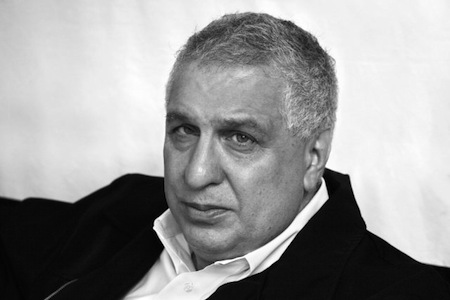Interview: Errol Morris on his documentary Tabloid
July 14, 2011 Leave a comment
Originally published in Picktainment:
There’s no doubt in anyone’s mind when they watch an Errol Morris film that he has a keen eye for the eccentricities that make us tick. His gift for interviewing his subjects by simply pointing a camera and letting them talk has produces award-winning documentaries. In his latest, Tabloid, he delves into the seedier side of humanity by examining the infamous Mormon Sex in Chains Case that took London by storm in the late 1970s. Though that case garnered very little attention in America, it was a precursor to today’s fascination with the downfall of celebrities and the enduring quest for our fifteen minutes of fame.
I know there was a book written in 1984 about Joyce McKinney. How did you find the story? Did you read the book?
I read the book belatedly after I had already interviewed Joyce, but not initially. I think my film is substantially different. I found this story through an AP article in the Boston Globe.
You worked as a private investigator. How did that impact how you do your interviews?
I was a private investigator briefly in Berkeley. I worked for Jack and Sandra Palladino, but very, very briefly in the 1970s. Then my film career, which never has amounted to a film career per se, it just went completely belly up and I had to find a way to earn a living so I worked as a private detective in New York in the early 80s.
How did your interview style come about and does it have a connection to your work as a detective?
I think it works the other way around. I started interviewing murderers. I interviewed Ed Gein and a whole number of different murderers in Northern California and Wisconsin. It goes back so many years. I had a relationship with Ed Kemper. I’d gone to all of these trials. I was going to write a PhD thesis on the insanity plea. In those days there were three mass murders in Northern California – the big three – Ed Kemper, Herbie Mullin, and JohnFrazier. So I had gone to the parts of all three. I was really interested in the insanity plea and writing about them. I started interviewing people. I believe those were my first real interviews.
Then I went back to Wisconsin and started interviewing people there. I developed this whole style of interviewing – I remember the tape recorders. I would play this game where I tried to say as little as possible. I had tapes where I was particularly proud of where my voice wasn’t on the tape. I would see if I could get the person I was interviewing for a full hour without my voice on the tape. The idea was this pure stream of consciousness – The Joycean interview, for lack of a better work. That definitely informed Gates of Heaven and I never included my voice. I wanted to publish a book and no one was really interested in my writing. So I stopped writing for years. Now, I’m publishing all of these books. I have a book coming out in September from Penguin Books. I have a second book coming out on the Jeffrey McDonald murder case. And I have a third book from Chicago Press based on a set of essays I wrote for the New York Times called The Ashtray. So, I’m writing a lot.
I was wondering what books you were reading at the time you were making Tabloid and what books are you reading now?
I’ve always been a fan of Frank Norris. It’s interesting that they’re always pairing The Octopus and The Jungle together and they’re both very disparate. They have nothing to do with each other; they come from different traditions all together. What I didn’t understand is that there was a relationship between Norris and Dreiser. And why was I thinking of Norris and Dreyser? Because Joyce McKinney told me that when she was in high school she had read a short story by Theodore Dreiser called The Second Choice. I got the short story and read it and then started to read Dreiser compulsively. This short story is one of the most amazing short stories.
The story is about a woman and it starts out with a series of letters written by her lover and it’s clear that he’s not that interested in her as much as she is in love with him and there is a man who wants to marry her, but she’s not particularly interested in him. She doesn’t want to end up like her mother, whose marriage was boring. In the end she settles for the second choice, the guy that she’s not really in love with and she ends up like her mother. The story, to call it bleak, is an understatement. Joyce told me that she had decided that this was not going to happen to her. She was never going to end up like this Dreiser character. The question, this is my question, is whether what happened to Joyce is worse.
When Kirk Anderson was taken away from her, why was California her first choice. Why did she come here immediately after that happened?
I don’t know. Maybe she believed she could earn a living here. Why does anyone want to come out here, you know? I didn’t ask her how she made her living out in California. The whole L.A. story was unknown to me until months after I did the initial interview with Joyce. I’m not sure how much I would have learned just by asking her questions about her life in L.A. She’s not really inclined to talk about it, at least from what I’ve seen and read about her. People love adversarial journalism as if you’re supposed to ask the difficult questions and push them against the wall. I think I would have learned little about Joyce if I had asked those types of questions. But I think the material is there, in the film.

 Bitter Lemons
Bitter Lemons Picktainment
Picktainment EdgeLosAngeles
EdgeLosAngeles LA Stage Alliance
LA Stage Alliance Askew Theatre Company
Askew Theatre Company Hollywood Fringe Festival
Hollywood Fringe Festival LA Radar Festival
LA Radar Festival Goldstar
Goldstar Plays 411
Plays 411